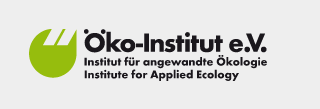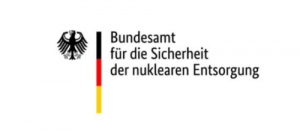Challenges and success factors for cross-border public participation in the site selection process (HErüber)
The Standortauswahlgesetz (StandAG), a German law defining the process for the selection of a final repository, regulates the individual procedural steps for a scientifically based, participatory and transparent search for a secure disposal site for high-level radioactive waste in Germany. The result should be supported by a broad social consensus; those affected should be able to tolerate the outcome.
The Federal Office for the Safety of Nuclear Waste Disposal (BASE) oversees the site selection and is responsible for public participation. It creates the foundations and framework conditions for involving the public in the search for a repository sites through formal and informal participation procedures. The Federal Company for Radioactive Waste Disposal (BGE) is responsible for searching for, constructing and operating a repository for high-level radioactive waste materials.
The site selection procedure follows three stages: 1) definition of subareas and suitable siting regions on the basis of existing geoscientific data; 2) above-ground exploration and identification of suitable sites; 3) underground exploration and site selection. Germany is the European country with the highest number of contiguous states. It is therefore not out of question that some of the sub-areas, siting regions and potential sites defined in the selection procedure are located on or in the immediate vicinity of one or more national borders. In the case of the construction of a repository for high-level radioactive waste, however, “concern” does not stop at national borders, so that the public (citizens* and other stakeholders) from neighboring countries must be involved in the participation processes from an early stage.
In order to adequately involve the public of the neighboring countries in the participation processes, it is required to analyze both the specific legal requirements for cross-border participation processes, and the socio-cultural expectations and practices in order to consider these in participation concepts.
The aim of the HErüber research project therefore is to identify such requirements and conditions relevant for the search of a final radioactive waste disposal in Germany. The project proceeds in three steps:
- First, a literature review is prepared to analyze legal requirements and evaluate the state of knowledge regarding the practice of transboundary participation from a political science perspective;
- Second, three case studies are conducted – the Swiss ‘Sectoral Plan Process’ for a radioactive waste disposal, the maritime spatial planning for the German exclusive economic zone, the construction of further units at the Dukovany nuclear power plant – to investigate in more detail how cross-border public participation takes place in practice;
- Third, five case studies are conducted to investigate expectations of cross-border public participation from the perspective of regions bordering Germany. The selecting of case study regions does not refer to the audits currently taking place by the BGE in context of the site selection process. The goal in the selection is to capture as wide a variety of spatial-geographic contexts as possible across the nationwide sub-areas.
Based on the literature review and the case studies, recommendations are developed for designing a legally compliant procedure that takes into account the cultural and political framework conditions of the neighboring countries.
This research project essentially breaks ‘new ground’, as the field of transboundary public participation has received little attention in social science research so far.
Duration
07/2020 – 07/2022
Cooperation partner
Öko-Institut
Funded by:
Bundesamt für die Sicherheit der nuklearen Entsorgung
Contact
Franziska Sperfeld
E-Mail: franziska.sperfeld@ufu.de
Telefonnummer: 030 4284 993 31
Dr. Michael Zschiesche
E-Mail: michael.zschiesche@ufu.de
Telefonnummer: 030 4284 993 32




